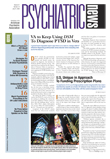Suppose victims of workplace bullying decide that the only way to escape it is by quitting their job. But what are their options if they cannot find a position in another organization.
Not very good from a financial or legal viewpoint, David Yamada, J.D., reported at an annual meeting symposium on the consequences of workplace bullying (see article at left). Yamada is a professor of law at Suffolk University in Boston. Victims might quit their jobs, but they then will likely lose employer-sponsored health insurance, and the costs of paying for continued coverage under the COBRA law may be prohibitive.
They might quit their jobs and file for unemployment benefits, but such benefits may be contested by employers who claim that the workers quit voluntarily.
They might seek workers' compensation for incapacity due to work-induced depression, but such claims are often denied.
They might apply for Social Security disability payments on the basis that they are mentally ill because of workplace bullying, but then they must demonstrate that they are fundamentally impaired in performing a variety of normal life activities.
Or they can resort to a lawsuit against the individuals who bully them, but“ most workplace bullies fall through the cracks of the legal system,” Yamada explained. Thus, the chances of receiving financial compensation from them are slim.
In short, the financial and legal safety net for people bullied in the American workplace is virtually nonexistent, Yamada concluded, which is not the case in Australia, Canada, and European countries.
So Yamada is in the process of developing the New Workplace Institute, a nonprofit research and education center whose goal is to promote healthy, productive, socially responsible workplaces. One of its first initiatives will be the Safety Net Project, which will provide information and, eventually, direct advice to bullied workers about employee benefits such as health insurance, workers' compensation, unemployment insurance, and disability payments.
Yamada has also drafted model antibullying legislation, dubbed the Healthy Workplace Bill, that would provide compensation to targets of severe workplace bullying who can demonstrate physical or psychological harm.
Since 2003 variations of the Healthy Workplace Bill have been introduced—but not yet enacted—in six states, and efforts on behalf of the bill are under way in several other states as well.
